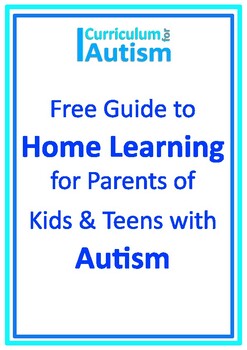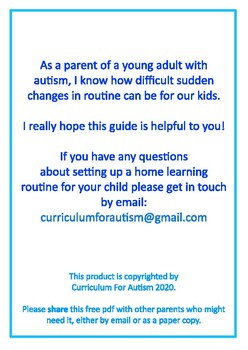Teaching & Learning
MICHIGAN'S VIRUS UPDATE PAGE
www.michigan.gov/coronavirus
Health and Wellness Resources
Factual Information on COVID -19
Centers for Disease Control
Coronavirus Disease 2019 (COVID-19)
Michigan Department of Health & Human Services
Coronavirus disease 2019 (COVID-19) Q&A
___________________________________________
Self Care Resources
Centers for Disease Control
Mental Health & Coping During COVID-19 Coping with a Disaster or Traumatic Event
Substance Abuse and Mental Health Services Administration
Coping With Stress During Infectious Disease Outbreaks
___________________________________________
Talking with Children
National Association of School Psychologists
Talking to Children About COVID-19
Child Mind Institute
Talking to Kids About the Coronavirus
Kid Health
Coronavirus (COVID-19): How to Talk to Your Child (for Parents)
Centers for Disease Control
Talking with children about COVID 19
___________________________________________
Free Referral and Information Helpline
Need help with food, housing, or paying bills? Need support in a family crisis or community disaster? 2-1-1 is a free referral and information network that connects people to a wide range of health and human services, 24 hours a day, 7 days a week. To contact 2-1-1 simply dial the numbers 2-1-1 from any phone. 2-1-1 operators offer help in 180+ languages.
___________________________________________
8 tips to help comfort and protect children.
8 tips to help comfort and protect children. UNICEF 11 March 2020
It’s easy to feel overwhelmed by everything you’re hearing about coronavirus disease 2019 (COVID-19) right now. It’s also understandable if your children are feeling anxious, too. Children might find it difficult to understand what they are seeing online or on TV – or hearing from other people – so they can be particularly vulnerable to feelings of anxiety, stress and sadness. But having an open, supportive discussion with your children can help them understand, cope and even make a positive contribution for others.
1. Ask open questions and listen
Start by inviting your child to talk about the issue. Find out how much they already know and follow their lead. If they are particularly young and haven’t already heard about the outbreak, you may not need to raise the issue – just take the chance to remind them about good hygiene practices without introducing new fears.
Make sure you are in a safe environment and allow your child to talk freely. Drawing, stories and other activities may help to open up a discussion.
Most importantly, don’t minimize or avoid their concerns. Be sure to acknowledge their feelings and assure them that it’s natural to feel scared about these things. Demonstrate that you’re listening by giving them your full attention, and make sure they understand that they can talk to you and their teachers whenever they like.
2. Be honest: explain the truth in a child-friendly way
Children have a right to truthful information about what’s going on in the world, but adults also have a responsibility to keep them safe from distress. Use age-appropriate language, watch their reactions, and be sensitive to their level of anxiety.
If you can’t answer their questions, don’t guess. Use it as an opportunity to explore the answers together. Websites of international organizations like UNICEF and the World Health Organization are great sources of information. Explain that some information online isn’t accurate, and that it’s best to trust the experts.
3. Show them how to protect themselves and their friends
One of the best ways to keep children safe from coronavirus and other diseases is to simply encourage regular handwashing. It doesn't need to be a scary conversation. Sing along with The Wiggles or follow this dance to make learning fun.
You can also show children how to cover a cough or a sneeze with their elbow, explain that it’s best not to get too close to people who have those symptoms, and ask them to tell you if they start to feel like they have a fever, cough or are having difficulty breathing.
4. Offer reassurance
When we’re seeing lots of troubling images on TV or online, it can sometimes feel like the crisis is all around us. Children may not distinguish between images on screen and their own personal reality, and they may believe they’re in imminent danger. You can help your children cope with the stress by making opportunities for them to play and relax, when possible. Keep regular routines and schedules as much as possible, especially before they go to sleep, or help create new ones in a new environment.
If you are experiencing an outbreak in your area, remind your children that they are not likely to catch the disease, that most people who do have coronavirus don’t get very sick, and that lots of adults are working hard to keep your family safe.
If your child does feel unwell, explain that they have to stay at home/at the hospital because it is safer for them and their friends. Reassure them that you know it is hard (maybe scary or even boring) at times, but that following the rules will help keep everyone safe.
5. Check if they are experiencing or spreading stigma
The outbreak of coronavirus has brought with it numerous reports of racial discrimination around the world, so it’s important to check that your children are neither experiencing nor contributing to bullying.
Explain that coronavirus has nothing to do with what someone looks like, where they are from or what language they speak. If they have been called names or bullied at school, they should feel comfortable telling an adult whom they trust.
Remind your children that everyone deserves to be safe at school. Bullying is always wrong and we should each do our part to spread kindness and support each other.
6. Look for the helpers
It’s important for children to know that people are helping each other with acts of kindness and generosity.
Share stories of health workers, scientists and young people, among others, who are working to stop the outbreak and keep the community safe. It can be a big comfort to know that compassionate people are taking action.
7. Take care of yourself
You’ll be able to help your kids better if you’re coping, too. Children will pick up on your own response to the news, so it helps them to know you’re calm and in control.
If you’re feeling anxious or upset, take time for yourself and reach out to other family, friends and trusted people in your community. Make some time to do things that help you relax and recuperate.
8. Close conversations with care
It’s important to know that we’re not leaving children in a state of distress. As your conversation wraps up, try to gauge their level of anxiety by watching their body language, considering whether they’re using their usual tone of voice and watching their breathing.
Remind your children that they can have other difficult conversations with you at any time. Remind them that you care, you’re listening and that you’re available whenever they’re feeling worried.
Online Education Resources
-
Age of Learning (ABCMouse, Adventure Academy, ReadingIQ) - Age of Learning blends education best practices, innovative technology, and insightful creativity to bring learning to life for children across the U.S. and around the world.
-
BrainPop- Animated Educational Site for Kids - Science, Social Studies, English, Math, Arts & Music, Health, and Technology.
-
Commoncoresheets.com (printable resources)- A source for free math worksheets. Common Core , K-5 and more!
-
Epic!- Digital Library - Unlimited reading for kids 12 & under.
-
Khan Academy- FREE exercises, quizzes, and tests so students can practice and master skills, as well as instructional videos to help students learn or review material.
-
Kids Discover Online- Kids Discover Online provides a cross-curricular experience for the modern classroom. It packs science, social studies, and ELA into one easy-to-use, online reading platform for grades 3-8! Kids Discover Online provides a cross-curricular experience for the modern classroom.
-
Libby App- Free ebooks and audiobooks for anyone with library card.
-
Newsela- Free access to Newsela’s entire product suite for the rest of the 2019/2020 school year.
-
PebbleGo- A curricular content hub specifically designed for K-3 students. Packed with informational articles, ready-made activities, and literacy supports for students of all abilities, it boosts engagement and fosters independent learning in core subject areas.
-
Prodigy- An engaging, curriculum-aligned math platform for students grade 1-8.
-
Special Needs for Special Kids- Remote learning that includes Science, Social Studies and novel units.
-
SplashLearn- A math learning program for students K-5 . It includes unlimited, fun math practice games, math lessons on number counting, addition, subtraction etc.
Many students also have logins for: Xtra Math, Raz-Kids, Spelling City & Freckle
Engagement Resources
Family Engagement Ideas- In addition to the digital resources there are also low-tech alternatives that encourage creativity, collaboration, and family connection. Take the challenge and commit to four (4) activities a day and enjoy your time together!
School Closure Toolkit- This toolkit includes visual supports for children with autism to use during the COVID-19 school closures.
Storyline Online- A FREE children's literacy resource featuring the world's best storytellers reading books aloud. Each video includes an activity guide with lessons for K-5 students to do at home.
Scholastic Learn at Home- Free online Pre-K & K-9 Curriculum with 3 hours per day of activities. Scholastic Learn at Home provides 20 days’ worth of active learning journeys designed to reinforce and sustain educational opportunities for those students who are unable to attend school.
Read By Grade Three
Parent Resources:![]() Read by Grade Three - Full Video
Read by Grade Three - Full Video![]() Read by Grade Three - Short Video
Read by Grade Three - Short Video![]() Read by Grade Three - Parent Tip Video
Read by Grade Three - Parent Tip Video
Facts for Families: What is the Read by Grade Three Law?
Facts for Families: What is the Read by Grade Three Law? (Spanish)
Essentials for Families: Fridge Poster (Please note: The poster prints on 11"x 17" paper)
Early Literacy Bookmarks
MeL eResources Supporting Early Literacy





